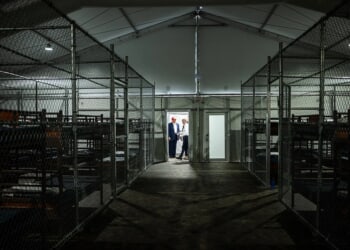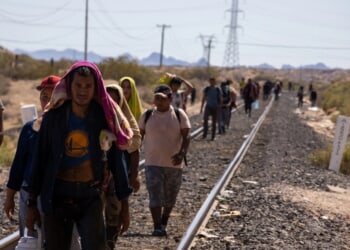Father’s Day has come and gone, but this year’s media coverage of Father’s Day revealed that the nation faces a radical divide over the nature of parenthood and family life.
Father’s Day should be a day to honor the men who work diligently, love their wives, teach their children virtue, and quietly carry the weight of responsibility for their families. Instead, several media outlets pushed stories that downplay, criticize, and sideline the importance of fatherhood. While millions of normal Americans took the day to celebrate fathers, media coverage has established an annual tradition of using the occasion to publish articles denigrating fathers.
One Father’s Day article in the New York Times was simply a daughter’s hit piece against her father, attacking him viciously and publicly for largely minor grievances. His crimes included not taking her to baseball games, moving a lot for work, and “awkward silences.” The article offered him hardly any sympathy or grace but showered the author in self-praise. At one point, she extolled herself for not giving him a “hard time” when her father’s baseball pitch missed the plate — he was 85 years old at the time. The father is now 92, yet she is still airing out her petty injuries to the world.
Another scornful article in the Toronto Star argued outright that no fathers should be celebrated at all on Father’s Day. Rather, mothers must be celebrated as the real heroes of Father’s Day. Father’s Day, which is “set aside so that children can thank Dad,” is “completely unnecessary,” the author writes. Fathers “need no special day on the calendar to let me know that.” Instead, Father’s Day ought to be when a man is “supposed to make it a priority to thank the woman who birthed his children.”
While Father’s Day is too much love for fathers, Mother’s Day just simply isn’t enough. The author concludes with a diatribe: “So on Father’s Day, when all the attention falls on perhaps the least important character in the delivery room, it seems to me that a smart father would insist on recognizing the blinding truth: the woman who made him a father is the real hero of the story.”
But the claim that a child’s father is the least important character in the delivery room is dead wrong. In fact, whether the father is actually present may be one of the most important facts of a child’s life, and it shouldn’t be taken for granted. In 2022, approximately 18.3 million children in the U.S. lived without a father in the home, about one in four American children.
America’s epidemic of fatherlessness has contributed to a whole host of societal ills, including violence, drug use, mental health issues, and suicide. The same report cited data suggesting that children without fathers are 10 times more likely to abuse chemical substances, and 71 percent of all children who abuse substances come from fatherless homes. Another study reported that fatherless children are 20 times more likely to be incarcerated. Nor can any of the data even account for the unquantifiable value for children to grow up in a home with a mother and a father.
That unquantifiable value is certainly attested to by the media’s irresistible urge to feature articles disparaging Father’s Day from authors who come from broken homes. For example, MSNBC ran an article in which the author laments his broken relationship with his father. While the author is right to grieve his parents’ divorce and his estrangement from his father (because present fathers really matter), the tendency to use Father’s Day as an opportunity to present numerous instances of disappointing dead-beat dads undermines the purpose of the holiday.
The country is sorely in need of present, loving, and strong fathers. Especially on Father’s Day, our institutions should focus on presenting models of fatherhood worthy of emulation and respect. And in turn, Americans need to honor and respect fathers.
Instead, a truly bizarre Father’s Day article from the New York Post attempted to stigmatize the entire concept of fatherhood. It characterized fatherhood as a historical oddity, yet at the same time it claimed that fatherhood has perpetuated the patriarchy for millennia. The author, Augustine Sedgewick, argued that “modern-day notions of fatherhood are fairly new.” From his point of view, the concept of fatherhood only solidified “in the 1980s, with the development of gene-based testing,” which made it possible to “establish paternity with absolute certainty.”
On the one hand, according to Sedgewick, no one ever knew the concept of fatherhood for all of human history. On the other hand, “across millennia, in the absence of a precise understanding of paternity, men have told stories about what it means to be a father that have supported their claims to power and authority.” Fatherhood may be less than 30 years old, but patriarchy is eternal.
Of course, Sedgewick’s claim is simply absurd on its face. Marriage and fatherhood are cornerstones of civilization. The commandment “Honour thy father and thy mother” points to a true reality, not a patriarchal power grab. And civilization has long had a method for establishing paternity: marriage that assumed fidelity. As one example among many, American Founding Father John Witherspoon, signer of the Declaration of Independence and a president of Princeton University, wrote that “the fundamental and essential part of the [marriage] contract is fidelity and chastity. This must immediately appear to be essential to the purpose of the union.”
Contrary to Sedgewick’s view, it was only in the 20th century, with its attack on the family, that paternity was routinely in doubt among respectable classes of people. But by establishing the concept of fatherhood on the invention of DNA testing, the true purpose of Sedgewick’s argument is to reduce fatherhood to mere biology. While Sedgewick counterfeits sophistication — he concludes the article by saying we should forgive our fathers for not living up to the mythical concept of fatherhood — the real impetus of the piece is precisely to depict fatherhood as mythical.
Sensible people ought to look at the media’s attempt to reframe Father’s Day with contempt. Fatherhood isn’t a myth, and it shouldn’t be denigrated. Just as America’s future relies on hardworking and present fathers, fathers need to be honored and respected.
In contrast to the media’s antics, President Donald Trump praised fatherhood in a presidential proclamation issued on Sunday. “America’s fathers are the custodians of our strength, the leaders of our families, and the protectors of our security and safety,” Trump said. “This Father’s Day, my Administration pays tribute to every father whose fierce love, heroic devotion, and inspiring example are molding the next generation.”
Jonah Apel is a Ph.D. student at Hillsdale College.
READ MORE from Jonah Apel:
Liberals Pounce on RFK Jr.’s Vaccine Committee Appointments
What C. S. Lewis Can Tell Us About New IVF Eugenics Technology
As Trump’s Federal Layoffs Continue, Critics Miss This Crucial Point


![Former Bravo Star Charged After Violent Assault Using a Rock-Filled Sock in Tennessee Walmart [WATCH]](https://www.right2024.com/wp-content/uploads/2025/07/Former-Bravo-Star-Charged-After-Violent-Assault-Using-a-Rock-Filled-350x250.jpg)



![Karoline Leavitt Levels CNN's Kaitlan Collins and Other Legacy Media Reporters [WATCH]](https://www.right2024.com/wp-content/uploads/2025/07/Karoline-Leavitt-Levels-CNNs-Kaitlan-Collins-and-Other-Legacy-Media-350x250.jpg)
![Man Arrested After Screaming at Senators During Big Beautiful Bill Debate [WATCH]](https://www.right2024.com/wp-content/uploads/2025/06/Man-Arrested-After-Screaming-at-Senators-During-Big-Beautiful-Bill-350x250.jpg)



![Illegal Alien Walked Free After Decapitating Woman, Abusing Corpse for Weeks [WATCH]](https://www.right2024.com/wp-content/uploads/2025/07/1753013138_Illegal-Alien-Walked-Free-After-Decapitating-Woman-Abusing-Corpse-for-350x250.jpg)





